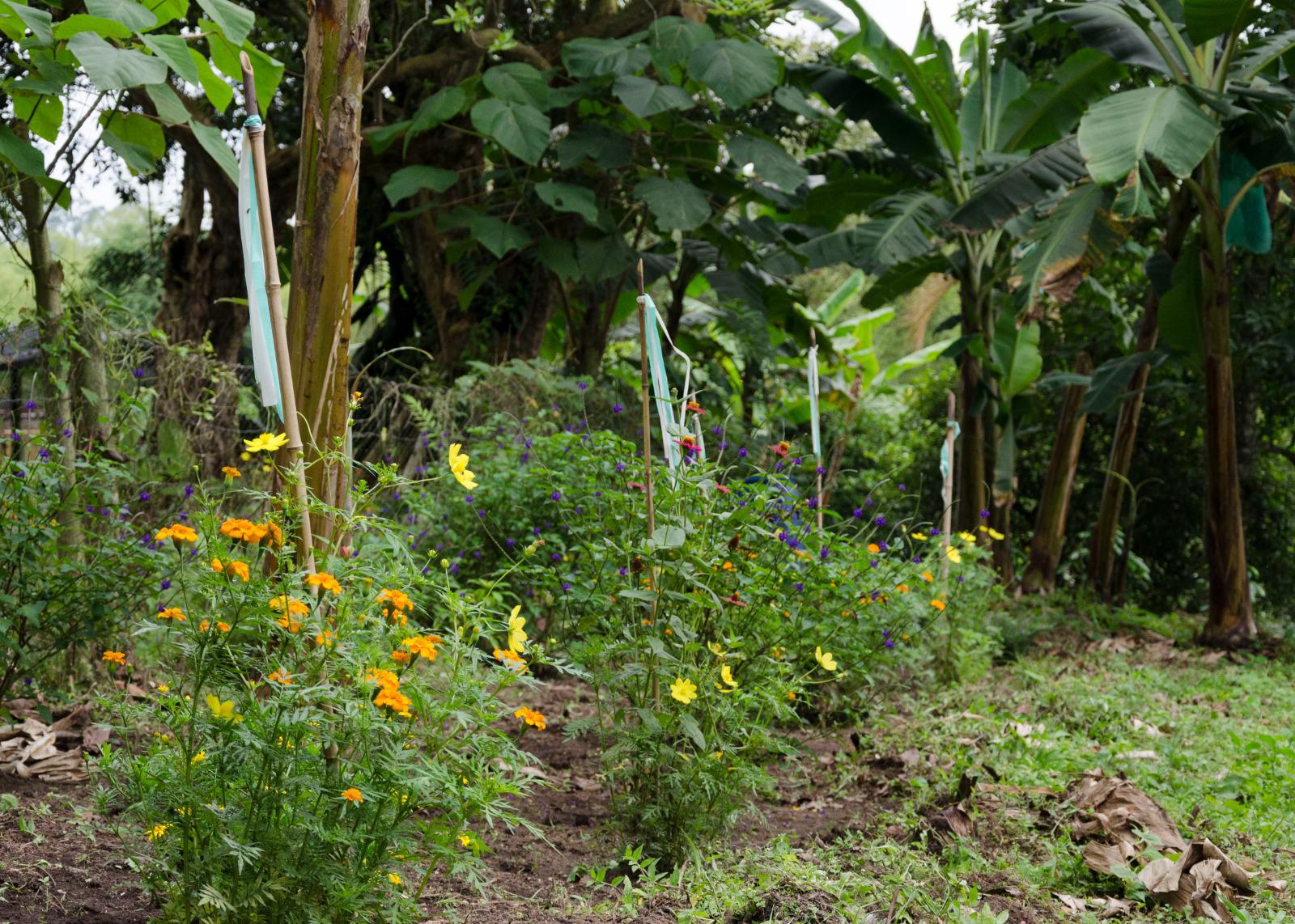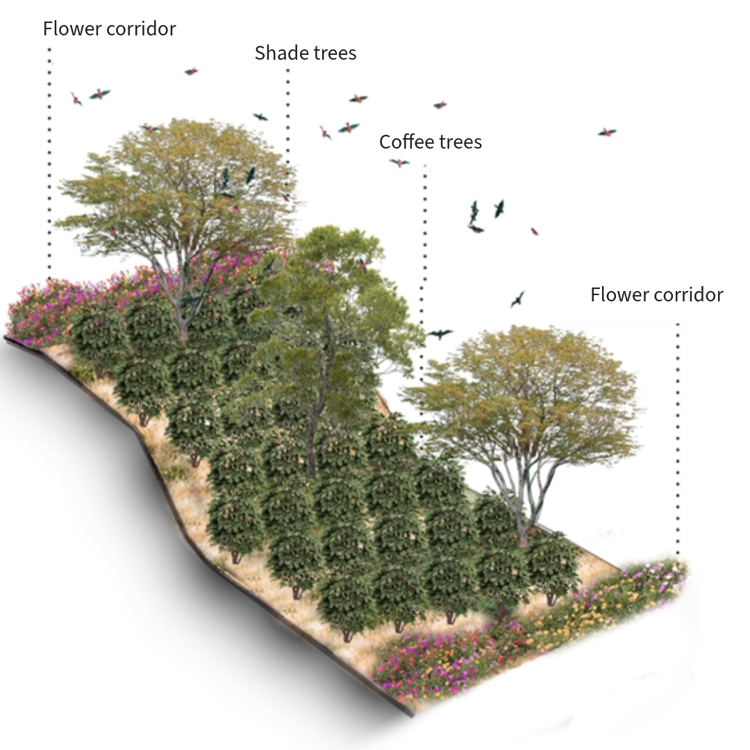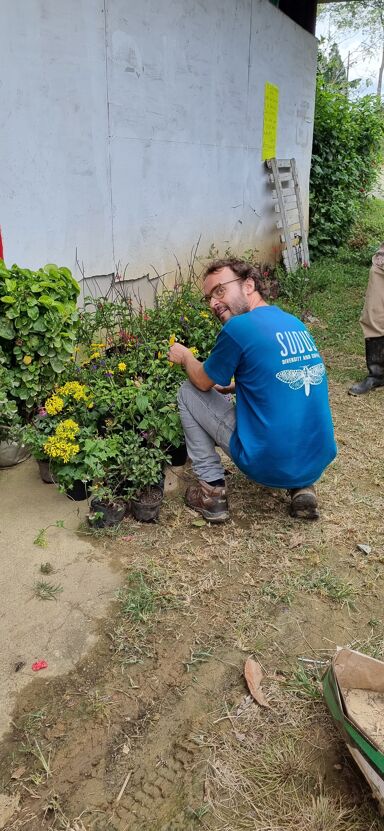
Project Flower Corridors - Colombia
Biodiversity for a better coffee
When
Project started in août 2022
Where
Génova, Quindío
Who
Coffee producers from Génova, Quindío
Presentation of the project
What is the context?
Quindío is Colombia's smallest department, yet it is home to 10% of the country's biodiversity. For several years now, coffee growers have been clearing out numerous trees and wild flowers in order to plant more productive and resistant varieties of coffee. The aim? To achieve higher yields.
These methods have a considerable impact on biodiversity, with the loss of many pollinating insects. Faced with this situation, there is an urgent need to move away from productivist production towards production that respects biodiversity.
What does the project involve?
Belco, Sudus Coffee and Delonghi have made a commitment to sustainability by developing the “Flower Corridors” project.
This initiative by Sudus, together with a team of botanists, biologists and entomologists, involves planting corridors of flowers and shade trees on the Quindío farms selected for the project.
Nurseries for flowering plants and shade trees will be built, and training will be provided on the impact and benefits of biodiversity and shade in coffee growing.
What are the objectives?
The "Flower Corridors" project aims to reduce the use of pesticides and agrochemicals, improve soil health and encourage coffee production in symbiosis with its ecosystem.
Secondly, we expect to see a significant increase in the biodiversity of flora and fauna, particularly pollinators. The return of pollinators to farms will help to reduce attacks by parasites and diseases.
Financing
The total budget for the project is USD 35,000.
It is divided between the participants as follows:
- Delonghi: USD 21,500
- Producers: USD 7,000
- Sudus: USD 6,500
How will we measure the impact of this project?
To check that the objectives have been achieved, we will proceed in 2 stages. Firstly, we will count the pollinators present (by sampling) before launching the project. Then, after 6 to 8 months, we will carry out a second sampling, and measure the progress made by "Flower Corridors".
How are insects counted? The team of entomologists walk around a perimeter using tools such as insect nets and fermented fruit. They focus on recording the species of visitors and pollinators found in the area of the coffee plantation where the floral corridor will be planted.
We will also be looking at the reduction in the use of chemical inputs on the project's partner farms.
Complete documentation
Page in PDF and QRCode in all languages
Discover the coffee linked to this project
How far has the project got?
July 2022
Step 1
Official launch of the project, with training for selected growers on the impact and installation of flower corridors and shade trees.

July 2022
Step 2
As well as training the growers, the project's agronomist and architect have selected the flower species to be planted and are starting to build the flower corridors.
December 2022
Step 3
Setting up a flower and shade tree nursery. At the same time, cuttings of flowers and trees to expand the nursery.

December 2022
Step 4
The flower corridors and shade trees are planted on the farms.
March 2023
Step 5
Farmers are trained in the production and use of organic inputs, in order to produce coffee that respects the new ecosystem. New flower corridors and shade trees are planted on the farms.
October 2023
Step 6 (in progress)
Biodiversity inventory: the team of entomologists counts pollinating in 8 farms selected for the project, within a given perimeter. The results indicate an increase in the number of pollinators of more than 35% on average, compared to the 2022 inventory.
Project results
35
The number of farms where a flower corridor has been planted.
350
The number of hectares impacted by the project.
35%
The increase in number of pollinators 6 to 8 months after the 1st plantation of flower corridors.
